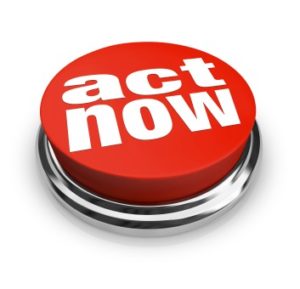Picture this: You just returned from a special event. It might have been an industry conference, a corporate event, a strategic planning session, a leadership retreat or training session.
 At the event, you talked about ideas you wanted to implement. You saw people you don’t ordinarily see or you met some new people.
At the event, you talked about ideas you wanted to implement. You saw people you don’t ordinarily see or you met some new people.
You’re energized.
But now you’re back at the office — in your “normal” routine responding to requests, fighting fires, etc. You’re busy.
Soon your event seems like a distant memory. You’ve lost your notes or forgotten about those ideas you wanted to implement.
Sound familiar?
That scenario is common to many clients with whom I work. In fact, I’ve experienced the same myself many times.
Just recently I returned from the National Speakers Association annual convention in Philadelphia — a four-day event with over 1,300 attendees. I’ve attended the event for many years, but this year was different — I took immediate action after the event.
Not a new concept. After all, research has shown that if you apply your learning in some way very quickly, it’s more likely to stick. I just hadn’t taken fast action in the past like I did this year.
Whenever you attend an event, here are some actions you can take immediately following the event. Not all will apply, but some variations might work for you.
QUICK ACTION Follow-Up Ideas:
1. Reconnect with people you just met.
- Send a LinkedIn invitation to connect.
- Thank people for a tip, idea or feedback they shared.
- Send a direct email.
- Mail a short handwritten note or postcard. (It’s a lost art.)
2. Capture key learnings and action items.
- Make a list of key ideas or possible action items on your flight home. Could be written or recorded on audio.
- If you’re a creative thinker, capture your ideas in a mindmap.
- Categorize and prioritize your ideas.
3. Share your learnings and action items.
- Summarize what you’ve learned and experienced. Note highlights.
- More importantly, state what you’re committed to doing as a result. This works well with a partner, trusted colleague, friend or coach.
- Report highlights to your team or boss or someone who missed the event. Don’t waste time on details that don’t matter. Stick to what you learned and will implement.
-
If you’re feeling overwhelmed by a big goal after your event, take the first step.
- Schedule important follow-up items on your calendar. (I’ve written about the importance of putting these items on your calendar before. Otherwise, they remain stuck on your “to-do” list.)
5. Form a mastermind group.
Masterminding is growing in popularity. Some groups evolve after an event to leverage the experience and expertise of selected people who attended. Identify those people with whom you have some synergy.
I have participated in many mastermind groups over the years. And I run my own groups.
Members in executive mastermind groups that I run get best results when they commit to a specific action they will take immediately following the meeting. They report back to the group the next day. This builds accountability.
As one member said, “Once I told the group what I really needed to do, I no longer procrastinated. I actually did it!”
- Identify highly motivated colleagues who are eager to meet on a regular basis to exchange ideas and feedback.
- Determine how you want to structure the group. Many groups meet virtually.
- Get started and adjust as you go.
Think about the time and financial investment you’ve made to attend your special event.
What’s it worth?
Taking fast action after the event is one important way to get the best ROA — Return on Attendance!
PS – From time to time I have openings in executive mastermind groups that I run in the local area. If you think you might benefit by connecting with a small group of exceptional executives and entrepreneurs, and would like to learn more, please let me know.
